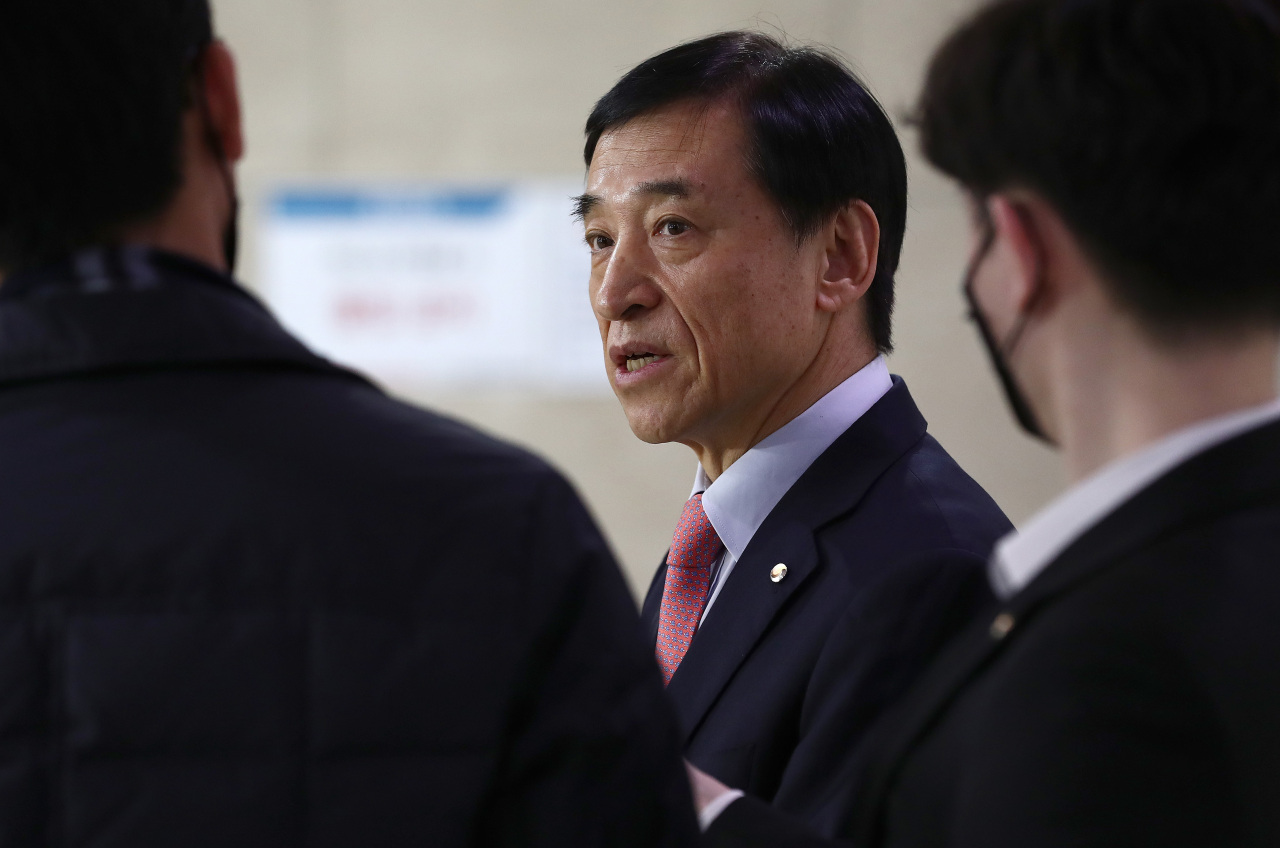 |
BOK Gov. Lee Ju-yeol speaks to reporters at the central bank's headquarters in Seoul on Friday. (Yonhap) |
While the financial authorities on Friday welcomed the $60 billion bilateral currency swap deal signed between South Korea and the US the previous day, some experts voiced concern that it may be too soon to rejoice because it is not yet clear what impact it will have on the market.
The deal is the first of its kind since the 2008 global financial crisis and will remain in effect for six months, unless both parties decide to extend.
“The $60 billion Korea-US bilateral currency swap will work as a strong safety net in quelling the local currency market,” Vice Finance Minister Kim Yong-beom said at a meeting on policymaking and innovative growth.
“The amount is twice compared with the deal signed during the 2008 financial crisis,” he added.
The 2008 South Korea-US currency swap deal, signed in October that year, was worth $30 billion and was initially set to expire after six months. It was, however, extended twice and remained effective until February 2010.
It helped bring the exchange rate to 1,170 won per dollar in February 2010 from 1,468 won per dollar in October 2008, according to the Bank of Korea.
“The global financial market’s demand for dollars has soared with the spread of the novel coronavirus and South Korea’s market also saw side effects of the dollar shortage, including the won’s plunge against the greenback,” BOK Gov. Lee Ju-yeol told a group of reporters early in the day.
On the possibility of the agreement being extended, like the one signed in 2008, Lee said the authorities would have to watch the market for the next six months but stayed open to the possibility.
Despite the authorities’ rosy outlooks, experts pointed to the difference between the situations in 2008 and now, with the COVID-19 pandemic projected to deal a heavier and longer-lasting blow to the global financial market.
“The decline of the won-dollar exchange rate could be a short-term result of the deal,” Kim Yu-mi, an analyst at local brokerage Kiwoom Securities, said in a Friday note.
“But in order for the effects to be prolonged, the strong dollar trend must be limited along with the signs that the spread of the coronavirus is ending. The cases in the US and Europe are only increasing at the moment and uncertainties stemming from fear of economic recession and credit risks still remain.”
Kim also said the effects of the Korea-US currency swap in 2008 wore off after a month and the won lost ground against the dollar again in mid-November that year, because the dollar stayed strong and market uncertainties remained unresolved.
“To bring stability to the currency market, the signs that the latest pandemic is ending and the US’ specific measures in dealing with credit crunch risks of troubled assets is crucial,” she said.
Korea currently has bilateral currency swap arrangements with eight countries, including Australia, Canada and China.
By Jung Min-kyung (
mkjung@heraldcorp.com)








